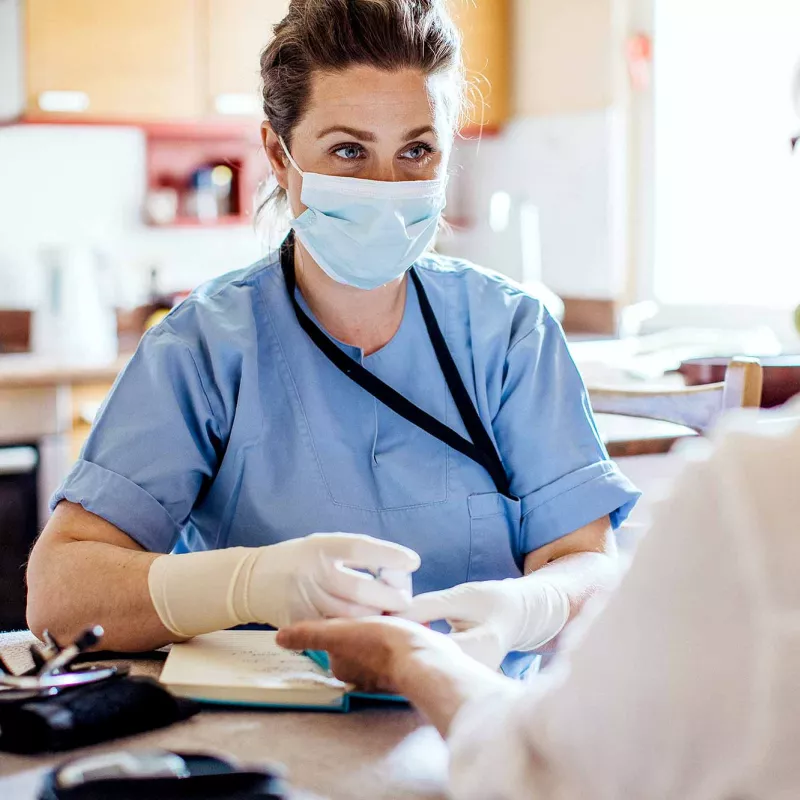
Finding What Your Heart Needs
An accurate diagnosis is the first step in your heart health journey. At the AdventHealth Heart, Lung, and Vascular Institute, you’ll meet an expert electrophysiology team backed by leading-edge technology and diagnostic capabilities. Our goal is to quickly uncover what’s causing your symptoms so we can develop a custom plan to put you on the path to healing.
We’re here to help you find the right physician or a location that’s convenient for you.
Better Outcomes Guided by Diagnostic Precision
An electrophysiologist is a highly trained cardiology sub-specialist. Our electrophysiologists use physical evaluations and catheter-based procedures to pinpoint the location and cause of your heart rhythm disorder — uncovering vital information they use to determine how to treat your irregular heartbeat.
- Physical Exams
-
A physical exam will allow your doctor to listen for heart murmurs or fluid in the lungs, feel your thyroid glands, check if your heart is enlarged or even test your reflexes. Each part of the exam will help your doctor discover the cause of your heart rhythm disorder.
- EKG or ECG
-
An electrocardiogram reveals how well your heart chambers and valves are functioning, the places where blood flow is poor and where damage has already occurred. EKGs are noninvasive and painless — a doctor places sensors on your chest, arms and legs to detect the electrical activity of your heart.
- Holter Monitor
-
A Holter monitor is a longer version of an EKG. It measures and records your heart’s activity continuously for 24 to 48 hours or longer using a battery-operated portable device.
- Nuclear Imaging
-
Nuclear images help diagnose poor blood flow and heart damage. A nuclear imaging stress test shows the blood flow to your heart while at rest and during activity using radioactive dye and an imaging machine.
- Stress Test
-
During a stress test, you’ll ride a stationary bike or walk on a treadmill while your heart rate is monitored. The test can show your doctor how well your heart works while you are exercising, and diagnose problems with your heart’s blood flow.
- TEE
-
Transesophageal echocardiography (TEE) uses ultrasound technology to produce high-quality, detailed pictures that show the arteries leading to and from your heart.
- Additional Testing
-
Depending on the results of your tests, your doctor may run more tests, including a thyroid-stimulating hormone (TSH) test to identify an overactive thyroid. Other tests might include imaging on the legs or lungs to find potential blood clots and blood tests or heart monitors to help with diagnosis.

Correcting the Rhythm of Your Heart
With your diagnosis confirmed, our team of experienced cardiac electrophysiologists will work closely with you to decide the appropriate course of treatment for your abnormal heart rhythm. Skilled in advanced cardiac procedures and the implantation of leading-edge devices, they’ll put their hearts into helping yours.

On Pace With You
We know the urgency you feel when faced with a cardiac concern. The AdventHealth electrophysiology team is ready to ensure you receive the most accurate and effective care — and deliver it with caring, healing hands.

